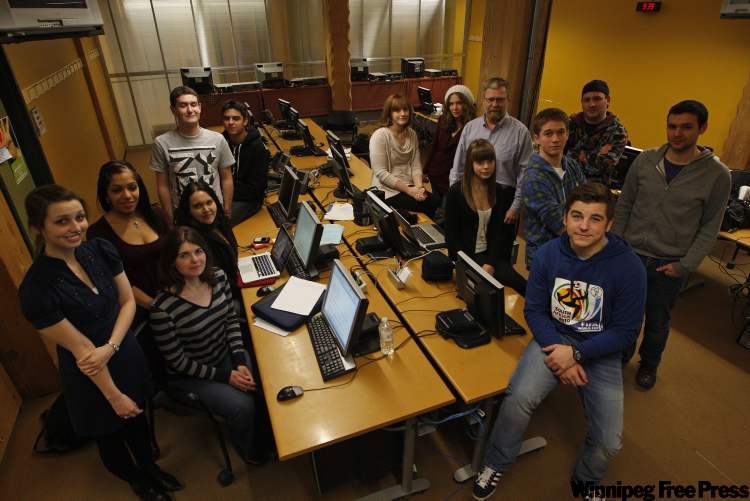Open secrets: Red River College students explore freedom of information
Advertisement
Read this article for free:
or
Already have an account? Log in here »
To continue reading, please subscribe:
Monthly Digital Subscription
$0 for the first 4 weeks*
- Enjoy unlimited reading on winnipegfreepress.com
- Read the E-Edition, our digital replica newspaper
- Access News Break, our award-winning app
- Play interactive puzzles
*No charge for 4 weeks then price increases to the regular rate of $19.00 plus GST every four weeks. Offer available to new and qualified returning subscribers only. Cancel any time.
Monthly Digital Subscription
$4.75/week*
- Enjoy unlimited reading on winnipegfreepress.com
- Read the E-Edition, our digital replica newspaper
- Access News Break, our award-winning app
- Play interactive puzzles
*Billed as $19 plus GST every four weeks. Cancel any time.
To continue reading, please subscribe:
Add Free Press access to your Brandon Sun subscription for only an additional
$1 for the first 4 weeks*
*Your next subscription payment will increase by $1.00 and you will be charged $16.99 plus GST for four weeks. After four weeks, your payment will increase to $23.99 plus GST every four weeks.
Read unlimited articles for free today:
or
Already have an account? Log in here »
Hey there, time traveller!
This article was published 20/12/2010 (5435 days ago), so information in it may no longer be current.
WINNIPEG – Asking for information under Manitoba’s freedom-of-information law is a crapshoot, Red River College students have learned.
On Sept. 20, the second-year journalism majors in the creative communications program filed seven requests under the Freedom of Information and Protection of Privacy Act. The results varied from almost full disclosure to no information at all.
Sandy Klowak and Yvonne Raymond had the most positive experience.

They asked all six school divisions in Winnipeg that offer French immersion to provide documents related to hiring standards for teachers as well as how many teachers meet those standards.
They received responses within the allotted 30 days from all divisions except the largest, Winnipeg, which responded two days late. But Winnipeg hand-delivered the envelope, which included a complaint form should the students want to complain about the delay.
However, only Winnipeg and River East Transcona provided the number of qualified French immersion teachers. The others ignored that part of the request, said the documents do not exist, or provided only a vague response.
Another request that went smoothly was one by Jessica Cable and Keith McCullough for complaints made against security staff at Winnipeg’s bars.
Kevin Hirschfield received the least satisfactory response to his request for complaints about funeral services.
He received plenty of promises of information, but no information over a span of more than two months.
One request involved some negotiations that worked out well. The province originally told Tammy Karatchuk and Kim Lawson their request for information about the controversial liberation therapy treatment for multiple sclerosis would cost more than $1,000.
After the impoverished students trimmed their request, the government brought the price down to $90, which the Free Press paid.
Requests by Sean Angus and Steve Dreger to the Manitoba government and the City of Winnipeg for information about the controversial and confusing plans for a new stadium yielded little useful information. The province responded with press releases and speech notes rather than new information and the city did not respond at all.
On the other hand, the province provided a quick but odd response to Kiran Dhillon and Andrew Kress, who inquired about the clearance rate for hate crimes.
Their request was granted in full in 14 days, and the government’s cover letter emphasized that it was providing two pages of information. But the first page of document contained only six lines of type, followed by plenty of white space. The second page consisted of a partial word: three letters and a period.
The students who had to do the most follow-up on their request were Shelley Cook and Darrin Bauming, who asked about the task force on missing and murdered Manitoba women.
The government responded that some of the information requested was “out of scope,” or omitted due to “exceptions of disclosure” under the FOI legislation. These exceptions included disclosure harmful to a third party’s privacy, an unreasonable invasion of privacy, and advice to a public body.
The students filed the appropriate complain form and are awaiting a response.
Keep watching the Free Press’ Open Secrets web section for the students’ stories in the coming weeks.

